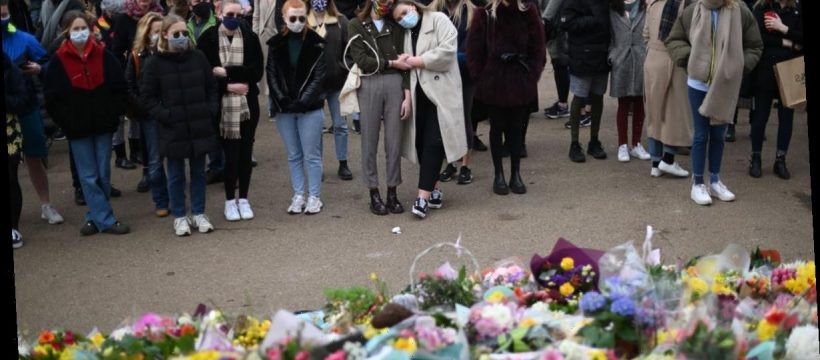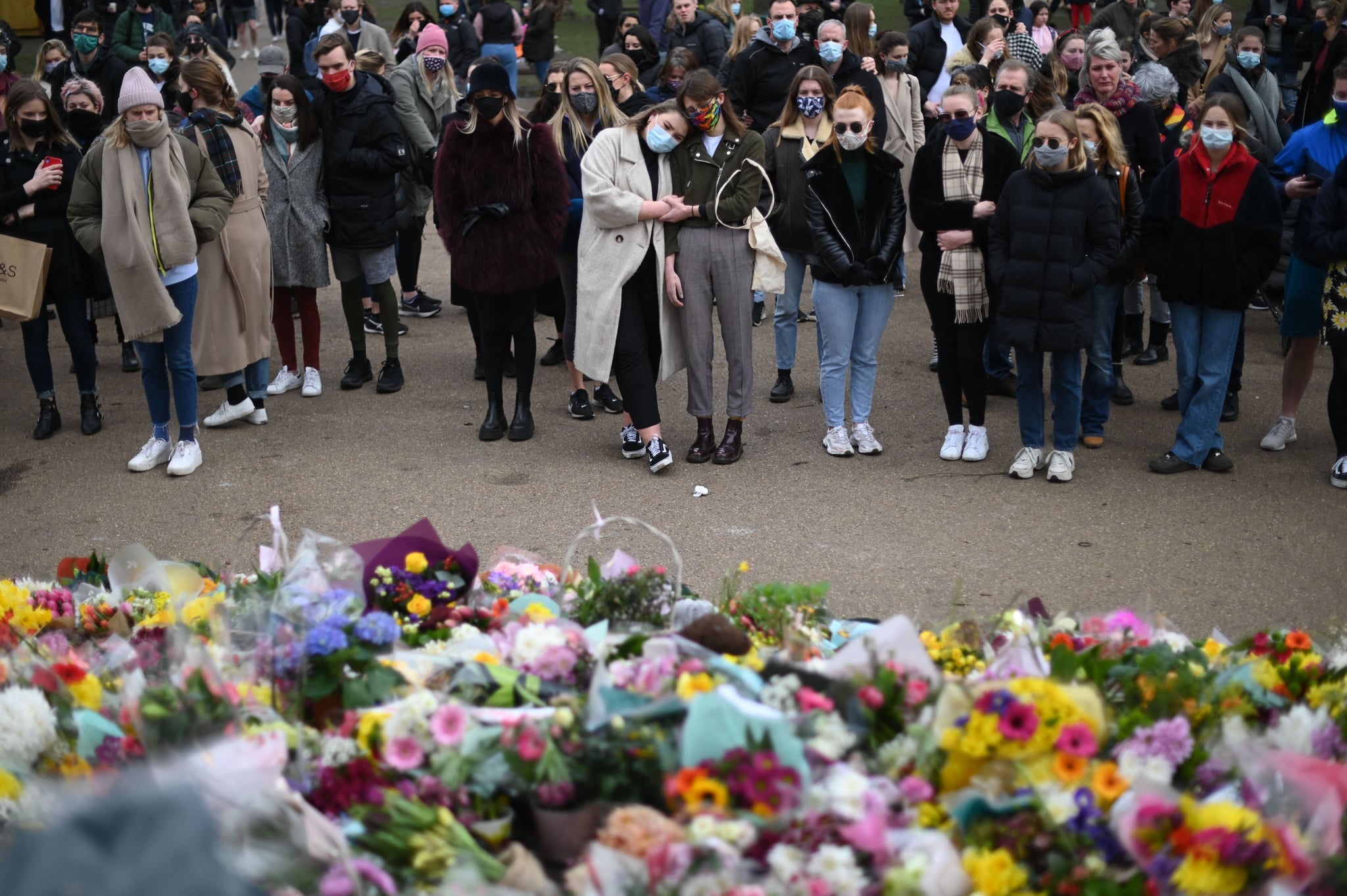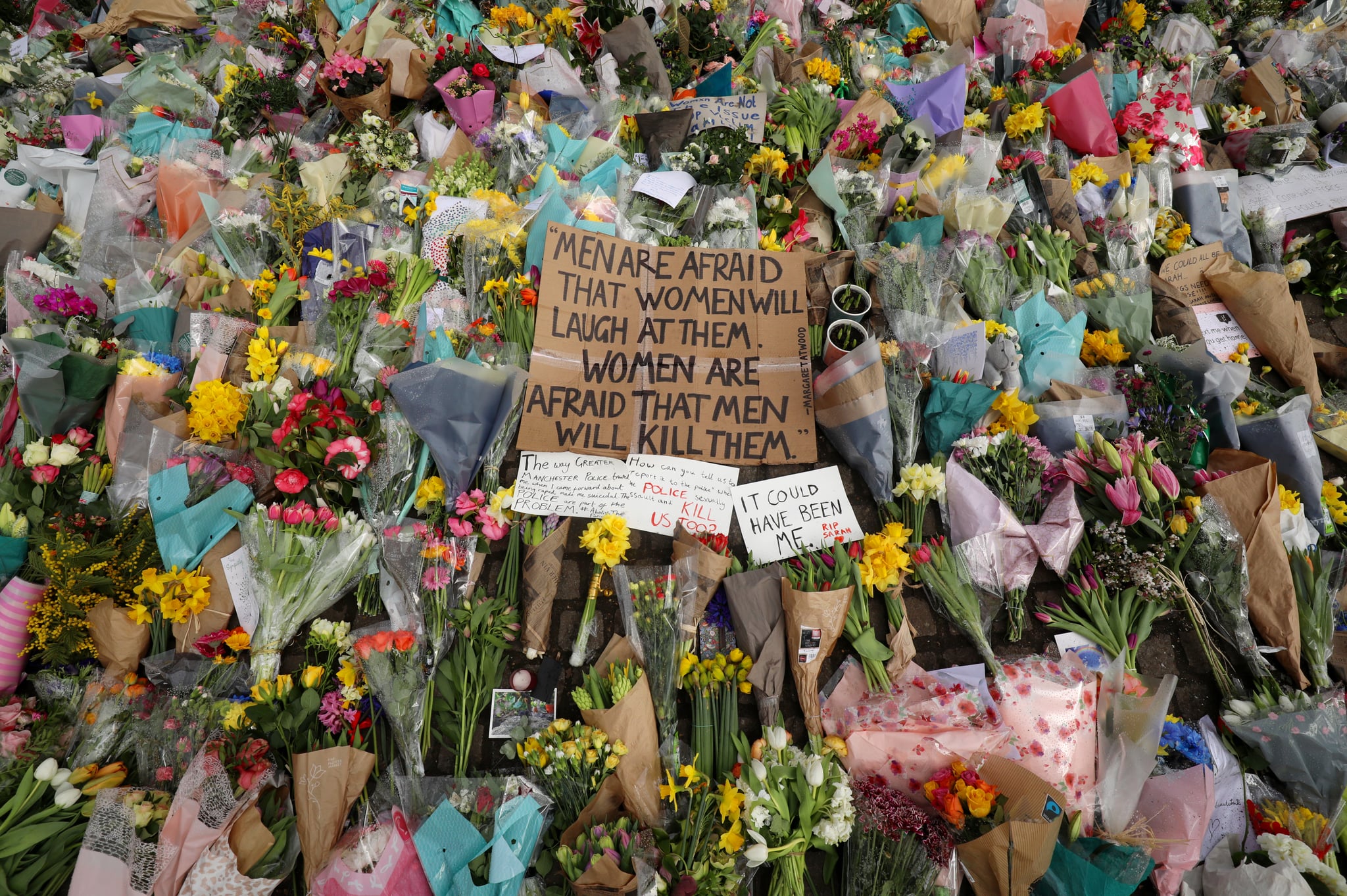The following story was originally published on POPSUGAR’s UK site.
March is Women’s History Month, but for most of us it has been an emotional roller coaster with nonstop twists. Social media can be one of the worst places to find yourself when a news story breaks — but as shock waves ran through us all with the story of Sarah Everard’s disappearance and murder while on a walk home in South London — that’s exactly where I found myself. Days prior, I watched as different men flooded social media with heartfelt messages for International Women’s Day, uplifting their mothers, sisters, coworkers, and friends. Sarah Everard’s disappearance gained international attention, with women leading the charge due to our shock, our shared experiences, our amplified fear, and the familiarity of her story. In the melee of overwhelming cries of empathy from women across the globe, I silently wondered . . . where are the men?
A survey conducted by the All-Party Parliamentary Group for UN Women UK shows that 97 percent of women aged 18 to 24 admitted to being sexually harassed, and 80 percent stated it happened in a public space. Sexual harassment has no race, it does not discriminate against body type, it isn’t ageist, but it does have a definitive gender: female. From a young age, we have been taught to take the proper precautions to negate unwanted male attention at school, work, or even during the simple act of walking down the street. Male privilege (yes, it’s real), on the other hand, has empowered our counterparts to walk freely in the world without the fear of not making it home, without the rising anxiety when an Uber drive takes an unfamiliar route, and without keys splayed between their fingers.
I remember telling this guy I didn’t want to dance with him, and he kept pulling me toward the conga line. I was so embarrassed and shocked, and just wanted to cry because I didn’t deserve that. He kept laughing, and thankfully, one of my girlfriends was there, because she yelled at him and in return threw beer in his face.
Men are missing from the conversation because passive language and messaging allow them to be. There are no statistics floating around with the exact number of men who admit to sexually harassing women, nor are there any that show us the amount who chastise their friends for abhorrent behaviour towards women. We need men to see these numbers, because judging by the victim blaming online, it’s apparent that many are complicit in the way their friends behave and have made excuses for women being sexually harassed. “Why didn’t she take an Uber?” has been the most common response online, and in reading it I realise that the point is lost on so many — taking an Uber doesn’t exempt a woman from harassment.
2017 was a weird time for transport in Greece. Uber drivers and taxi drivers were fighting, and there was a mandate for passengers to sit in the front seat when taking an Uber. A driver struck up a conversation with me along the journey, and I politely obliged. I’m not sure at what point in the conversation I gave off energy that made me seem like I was interested in him, but apparently I did, because he tried to kiss me. I reported the incident to Uber and the driver made a fake account on Facebook, communicating that he intended to sue me. I was just happy that my worst story still meant I got to go home.
Over the past few days, we have seen women share painful stories online because we all see ourselves reflected in Sarah Everard’s disappearance and murder. The ability to navigate public spaces without the fear of being harassed is something we live all with. In a world where we take all the necessary precautions, the deciding difference between us and Sarah Everard is still luck. Last summer during lockdown in London, an older man whom I had politely reciprocated a hello to on the tube followed me six stops from Paddington Station. He walked behind me for 20 minutes as I made my way along the busy High Street; I called my partner when I realised I was being followed. That same man followed me into the shop and, when confronted, said that he only wanted to pay for my groceries. I was panicked and hysterical, and I almost started crying in the grocery store. The fact that he could justify changing his route of travel to follow me with Good Samaritanism made me sick.
The same men that shared their posts for International Women’s Day, and proudly posted photos of their mums for Mother’s Day yesterday, are still missing from this important conversation. Passive language has afforded men the luxury of never actually being a part of a conversation that involves them. Over the past week, I have seen the staggering statistics of how many women are sexually harassed packaged in aesthetically pleasing posts shared across Instagram, and still I wondered where the men were. Days later I found out they were huddled under the weak barricade that is the “not all men” hashtag.
Dear men, we are aware that not all of you engage in sexual harassment, this rebuttal was not necessary. We need you to do your part, to stop being complicit when your friend does something that is clearly wrong and use your voices and privilege to protect us instead of watching from the sidelines.
Source: Read Full Article


